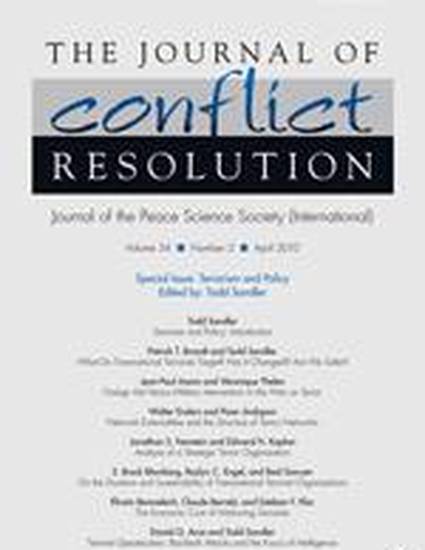
Article
Mediation Style and Crisis Outcomes
Journal of Conflict Resolution
(2006)
Abstract
This study focuses on the varying effectiveness of three mediation styles—facilitation, formulation, and manipulation—on international crises. Effectiveness is assessed in terms of three outcome variables: formal agreement, post-crisis tension reduction, and contribution to crisis abatement. The authors analyze new data on the mediation process from the International Crisis Behavior project (1918-2001). Manipulation has the strongest effect on the likelihood of both reaching a formal agreement and contributing to crisis abatement. Facilitation has the greatest influence on increasing the prospects for lasting tension reduction. The authors explore how the different styles affect the strategic bargaining environment to explain these differences in impact. The findings suggest that mediators should use a balance of styles if they are to maximize their overall effectiveness.
Keywords
- International crises,
- Crisis outcomes,
- Mediation styles,
- National bargaining
Disciplines
Publication Date
2006
Publisher Statement
Journal of the Peace Science Society
Citation Information
Bidisha Biswas, Kyle Beardsley, David M. Quinn and Jonathan Wilkenfeld. "Mediation Style and Crisis Outcomes" Journal of Conflict Resolution Vol. 50 Iss. 1 (2006) p. 58 - 56 Available at: http://works.bepress.com/bidisha-biswas/9/
